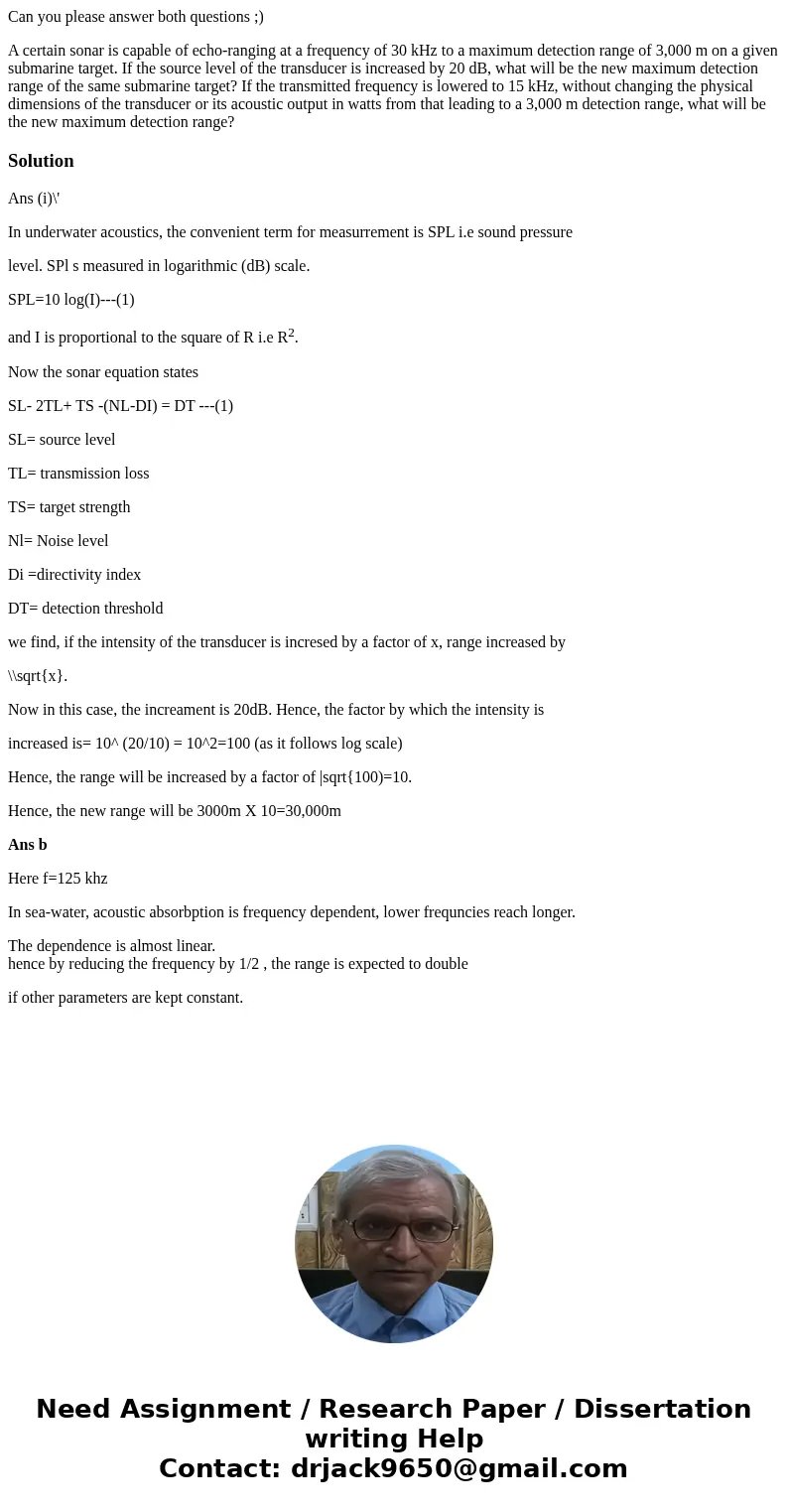Can you please answer both questions A certain sonar is cap
Can you please answer both questions ;)
A certain sonar is capable of echo-ranging at a frequency of 30 kHz to a maximum detection range of 3,000 m on a given submarine target. If the source level of the transducer is increased by 20 dB, what will be the new maximum detection range of the same submarine target? If the transmitted frequency is lowered to 15 kHz, without changing the physical dimensions of the transducer or its acoustic output in watts from that leading to a 3,000 m detection range, what will be the new maximum detection range?Solution
Ans (i)\'
In underwater acoustics, the convenient term for measurrement is SPL i.e sound pressure
level. SPl s measured in logarithmic (dB) scale.
SPL=10 log(I)---(1)
and I is proportional to the square of R i.e R2.
Now the sonar equation states
SL- 2TL+ TS -(NL-DI) = DT ---(1)
SL= source level
TL= transmission loss
TS= target strength
Nl= Noise level
Di =directivity index
DT= detection threshold
we find, if the intensity of the transducer is incresed by a factor of x, range increased by
\\sqrt{x}.
Now in this case, the increament is 20dB. Hence, the factor by which the intensity is
increased is= 10^ (20/10) = 10^2=100 (as it follows log scale)
Hence, the range will be increased by a factor of |sqrt{100)=10.
Hence, the new range will be 3000m X 10=30,000m
Ans b
Here f=125 khz
In sea-water, acoustic absorbption is frequency dependent, lower frequncies reach longer.
The dependence is almost linear.
hence by reducing the frequency by 1/2 , the range is expected to double
if other parameters are kept constant.

 Homework Sourse
Homework Sourse